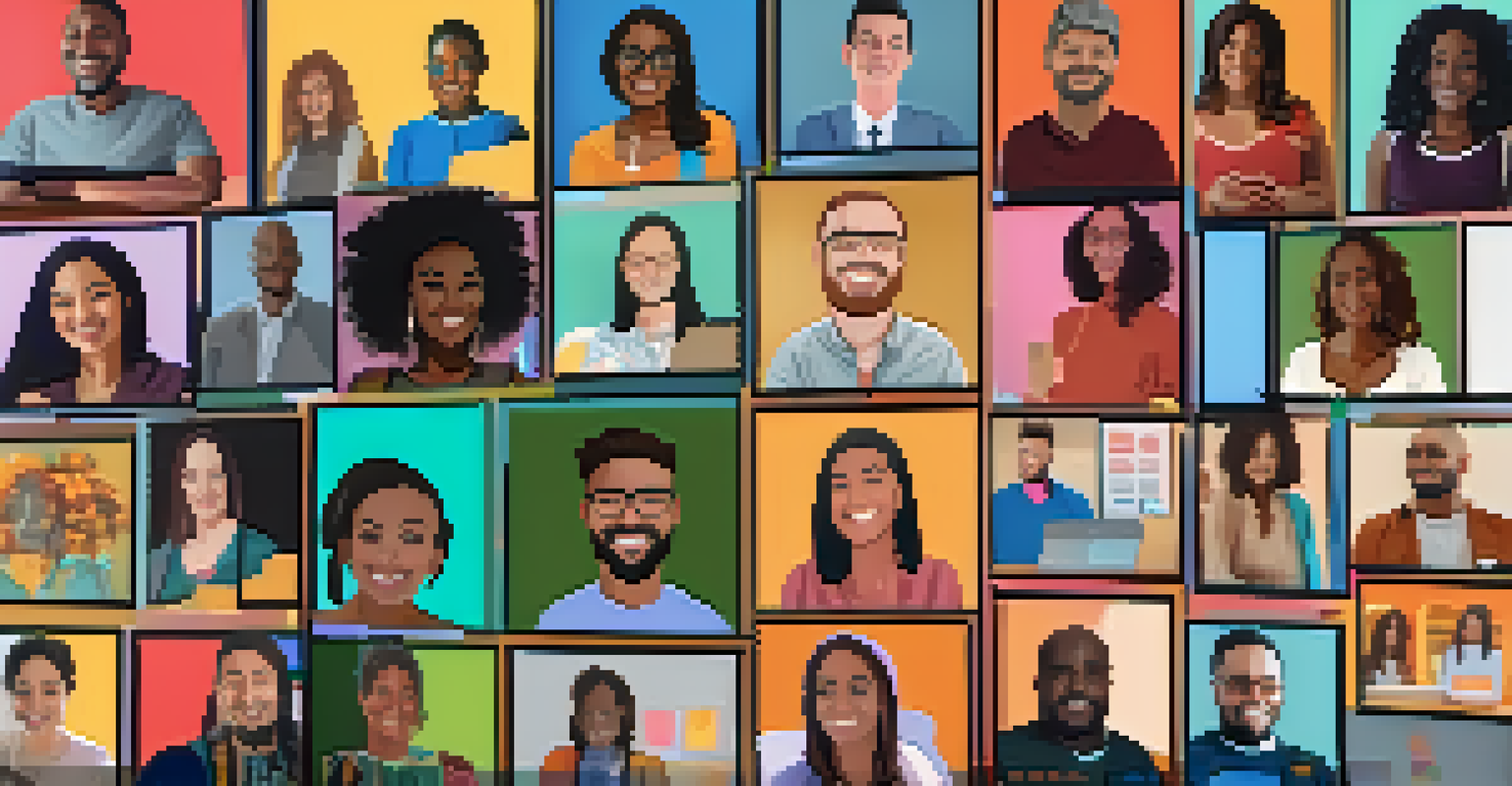Entheogens and Mental Health: Social Media Conversations

Understanding Entheogens: A Brief Overview
Entheogens are substances that can alter consciousness and are often used in spiritual or therapeutic contexts. They include naturally occurring plants and fungi, such as psilocybin mushrooms and ayahuasca. In recent years, there’s been a surge of interest in their potential benefits for mental health, particularly in treating conditions like depression and anxiety.
The mind is everything. What you think you become.
The term 'entheogen' comes from the Greek words meaning 'generate the divine within,' highlighting their traditional use in religious or spiritual practices. This historical context is crucial, as it underscores a long-standing human fascination with these substances and their perceived ability to foster profound personal insights.
Social media has become a significant platform for discussing these topics, allowing individuals to share their experiences and insights. This open dialogue can sometimes demystify entheogens, making them more accessible to those curious about their potential effects.
The Role of Social Media in Mental Health Conversations
Social media platforms like Instagram, Twitter, and TikTok have transformed how we discuss mental health. They provide a space for people to share their stories, seek advice, and find community support. As discussions about mental health become more normalized, entheogens are often included in these conversations as potential alternatives or complements to traditional therapies.

For many users, social media serves as a valuable resource for learning about mental health conditions and treatments. They can discover firsthand accounts of how entheogens have impacted others' mental health journeys, which can be both enlightening and encouraging. However, it’s essential to approach these stories critically, as personal experiences can vary widely.
Entheogens and Mental Health Benefits
Entheogens like psilocybin and ayahuasca show promise in treating mental health conditions such as depression and anxiety.
Moreover, the viral nature of social media can sometimes lead to the spread of misinformation. While many users genuinely seek to share helpful insights, it’s important to consult professional sources when considering the use of entheogens for mental health treatment.
Personal Stories: The Power of Shared Experiences
One of the most compelling aspects of social media is the power of storytelling. Users often share their personal experiences with entheogens, detailing how these substances have helped them cope with mental health challenges. These narratives can resonate deeply with others who may be struggling, creating a sense of connection and understanding.
What we know is a drop, what we don't know is an ocean.
For instance, a person might share how a guided psilocybin session helped them confront past trauma, leading to significant emotional breakthroughs. Such stories can inspire hope and encourage others to explore alternative treatments. They also highlight the potential therapeutic benefits that may exist beyond conventional methods.
However, while these experiences are powerful, they should not be viewed as universal solutions. Each individual's journey with mental health is unique, and what works for one person may not work for another. This nuance is crucial in maintaining a balanced and realistic perspective.
Navigating the Risks: A Cautious Approach
While the potential benefits of entheogens are exciting, it’s essential to approach their use with caution. Social media can sometimes glamorize these substances, overshadowing the potential risks and side effects. Users should be aware that not everyone will have a positive experience, and adverse reactions can occur, especially without proper guidance.
Furthermore, the legality of entheogens varies significantly by location, which can complicate discussions about their use. It's vital for individuals to educate themselves about their local laws and regulations surrounding these substances before considering their use for mental health purposes.
Caution in Social Media Discussions
While social media facilitates conversations about entheogens, it also risks spreading misinformation, making critical evaluation essential.
In addition, those interested in exploring entheogens should ideally do so under the supervision of trained professionals. This ensures a safer experience and maximizes the potential therapeutic benefits, reducing the risk of negative outcomes.
Research and Science: What Do the Experts Say?
As interest in entheogens grows, so does scientific research into their effects on mental health. Studies have shown promising results, suggesting that substances like psilocybin and MDMA may help alleviate symptoms of depression, PTSD, and anxiety. This research is crucial in providing a more informed basis for the conversations happening on social media.
However, the scientific community emphasizes the need for more extensive studies to understand the long-term effects and potential risks associated with entheogen use. As social media users share their experiences, it's vital to balance anecdotal evidence with scientific insights to form a comprehensive view.
Experts advocate for a cautious approach, recommending that those interested in using entheogens for mental health treatment consult with healthcare providers. This can help individuals make informed decisions based on both personal experiences and scientific findings.
Community Perspectives: The Impact of Online Groups
Online communities centered around mental health and entheogens have become increasingly popular. These groups provide a safe space for individuals to share their thoughts, ask questions, and offer support. The camaraderie found in these communities can be incredibly beneficial for those navigating their mental health journeys.
Members often share resources, such as articles or studies, that help inform discussions about entheogens and their potential effects. This collaborative approach can empower individuals to make more informed choices regarding their mental health and treatment options.
Community Support and Shared Stories
Online communities provide valuable support by sharing personal experiences with entheogens, fostering connection and understanding.
However, it’s important for community members to remain vigilant about the information shared within these spaces. Engaging in critical thinking and seeking out reputable sources can help ensure that discussions remain grounded in reality, rather than getting swept away by anecdotal claims.
The Future of Entheogens in Mental Health Treatment
As societal attitudes toward mental health continue to evolve, the role of entheogens in treatment may become more pronounced. Social media will likely play a pivotal role in shaping these conversations, bridging the gap between personal narratives and scientific inquiry. This shift could encourage more individuals to consider alternative treatments.
With ongoing research and a growing body of evidence supporting the potential benefits of entheogens, we may see increased acceptance within the medical community. This could lead to more structured treatment options and potentially even clinical trials for various mental health conditions.

Ultimately, the future of entheogens in mental health care will depend on a combination of scientific validation and societal acceptance. As we navigate this evolving landscape, maintaining open and informed discussions will be key to maximizing the benefits while minimizing the risks.